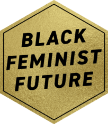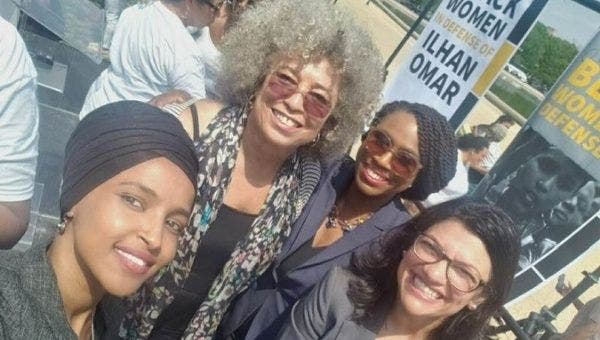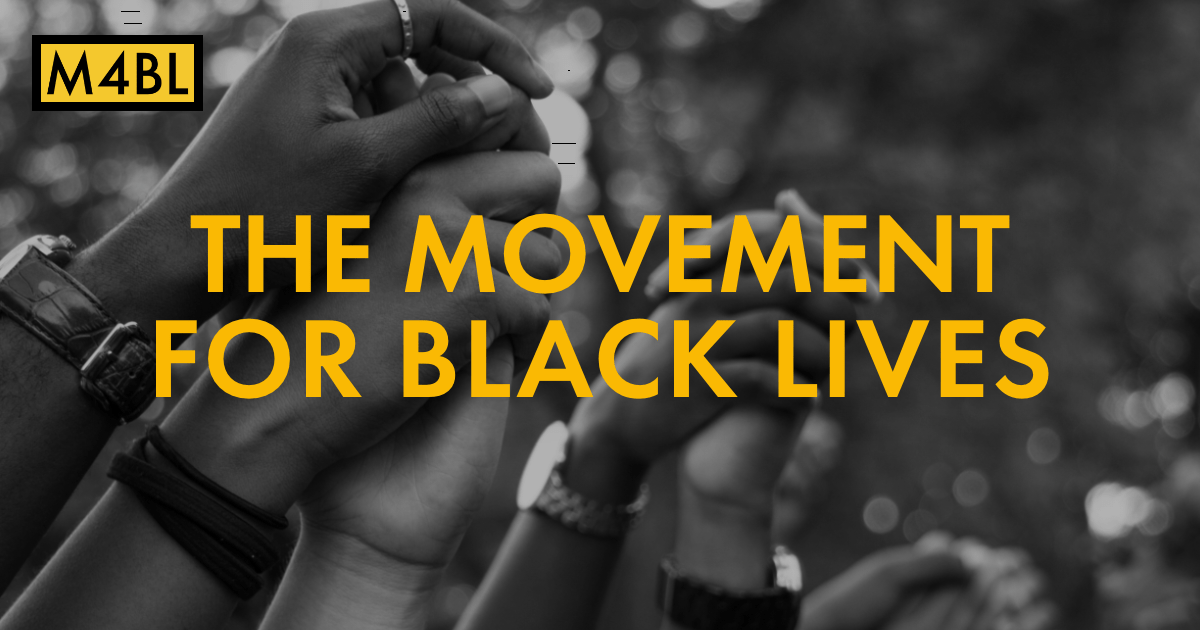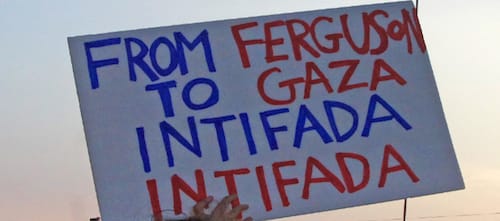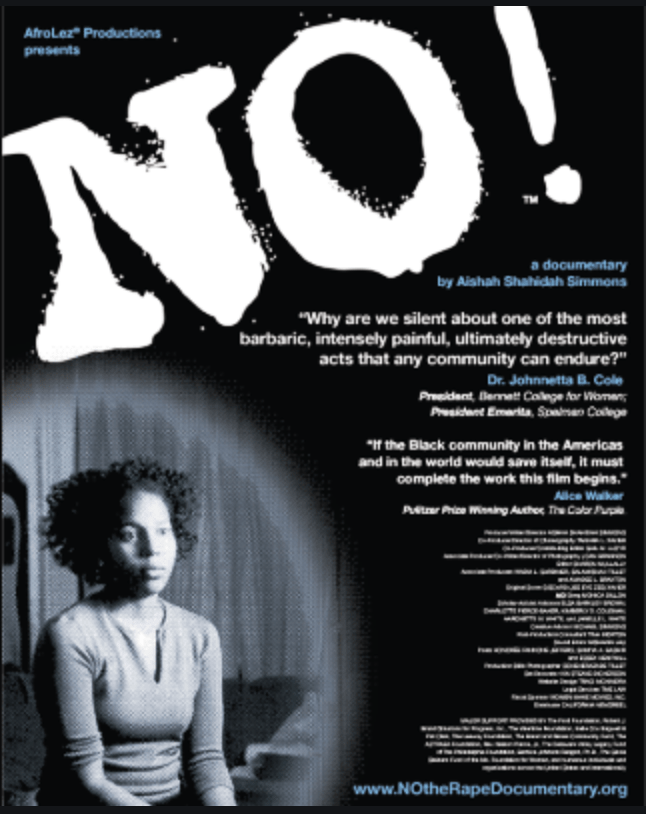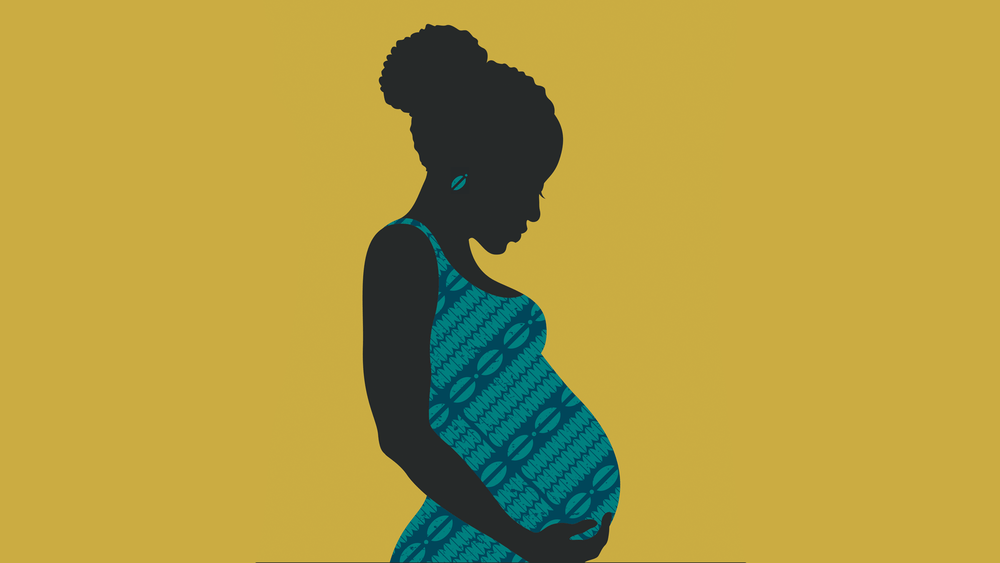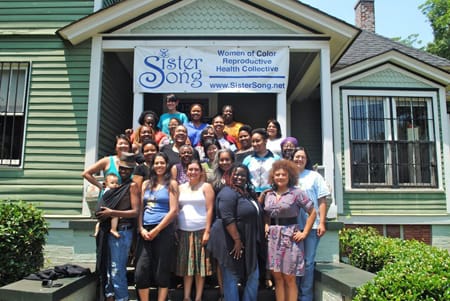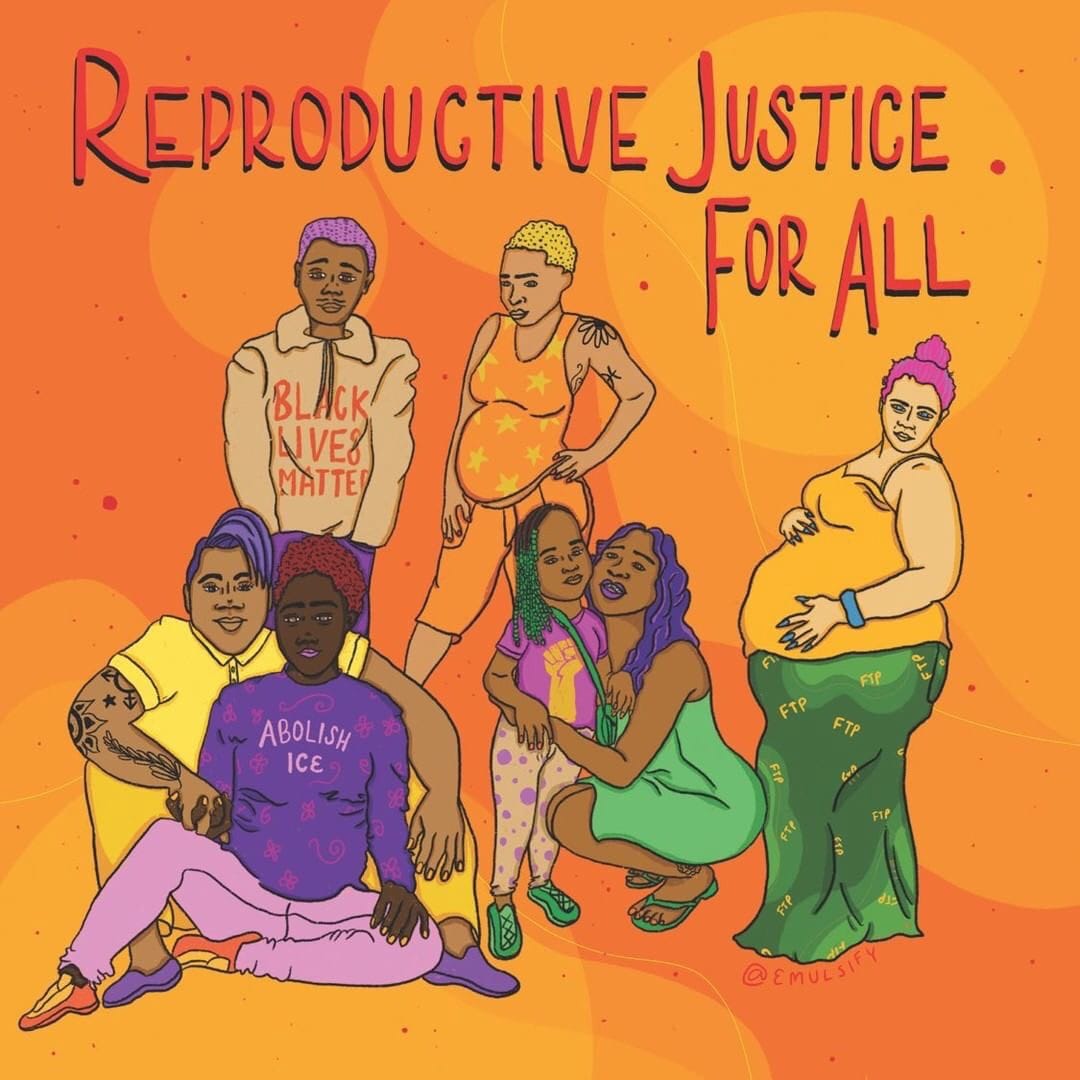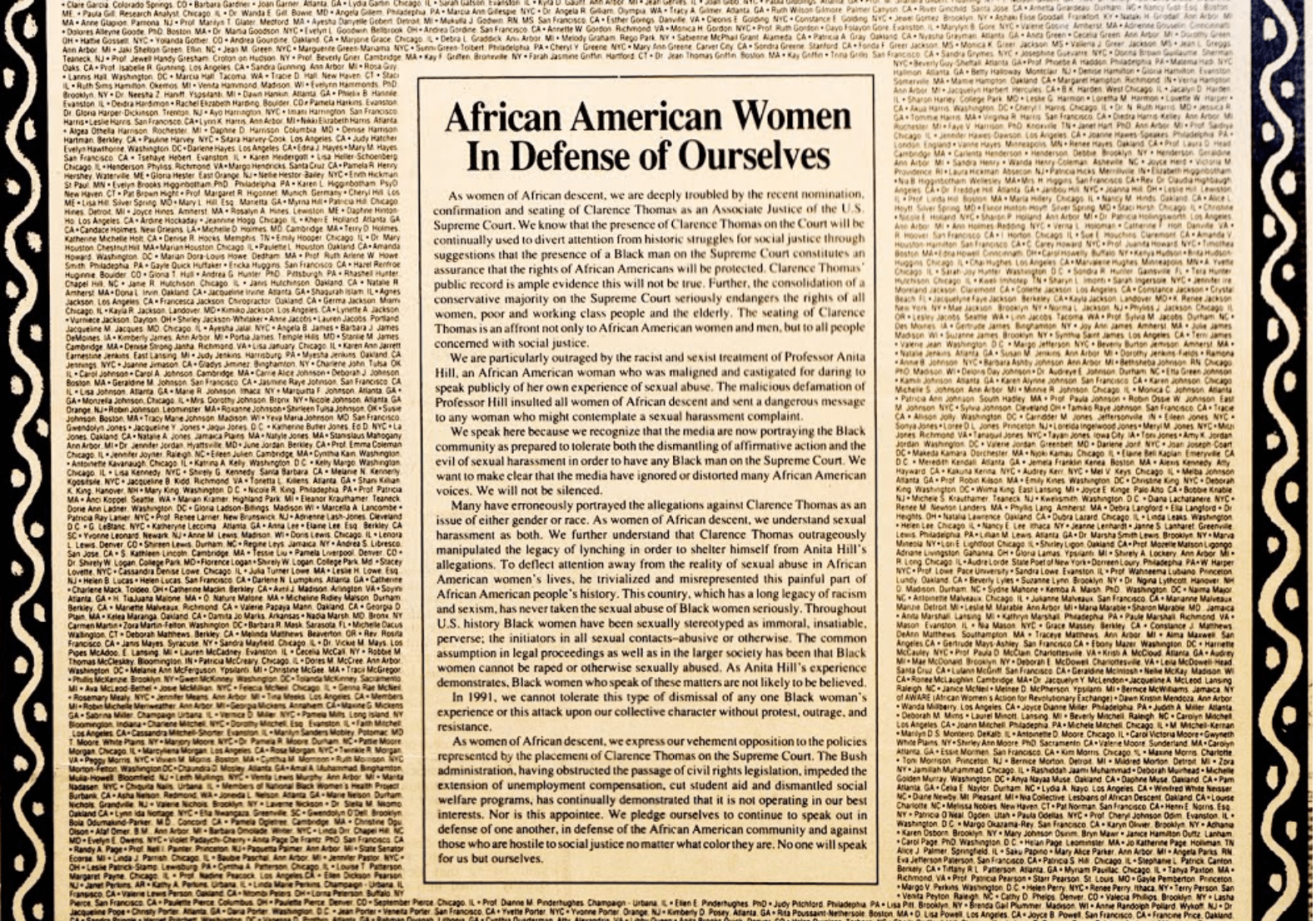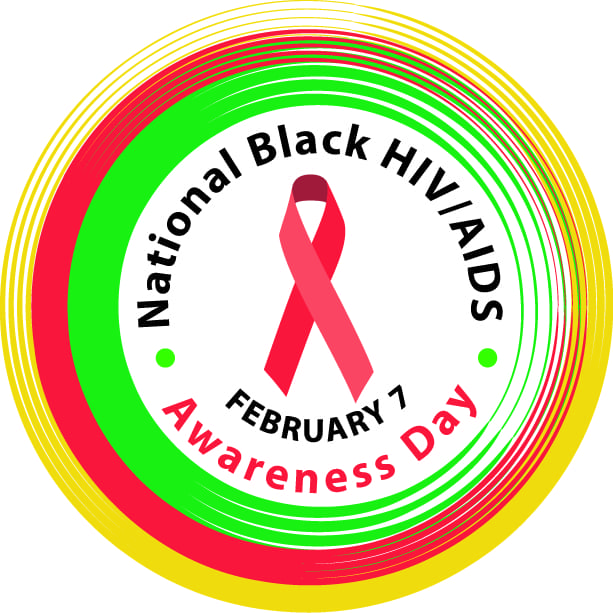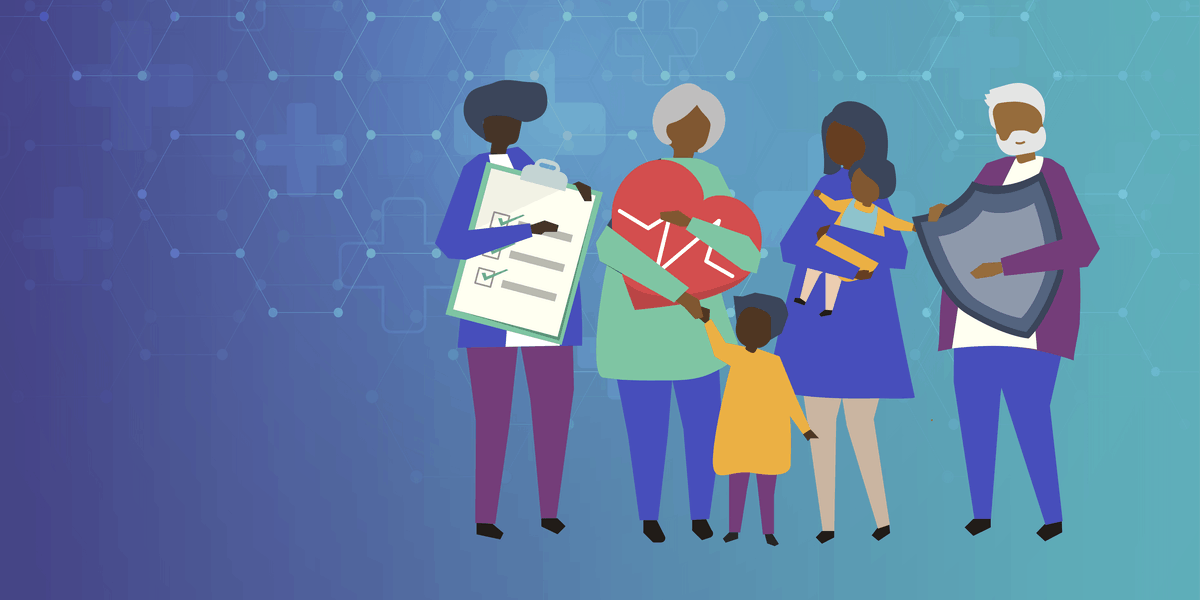On April 30, 2019, Angela Davis and Barbara Ransby led a rally in Washington, DC: Black Women in Defense of Ilhan Omar. At that time, Omar was one of two Muslim women in Congress. The rally was a response to the increased political attacks on Omar by Donald Trump and other white supremacists who were angered by her comments on Islamophobia in the wake of 9/11.
Category: Social Movement
The Movement for Black Lives
The Movement for Black Lives (M4BL), formed in December of 2014, was created as a space for Black organizations across the country to debate and discuss the current political conditions; develop shared assessments of what political interventions were necessary in order to achieve key policy, cultural, and political wins; and convene organizational leadership in order to debate and co-create a shared movement-wide strategy.
Indigenous and Feminist of Color Delegation to Palestine
“Between June 14 and June 23, 2011, a delegation of 11 scholars, activists, and artists visited occupied Palestine,” notes Jadaliyya Reports. The group comprised people who had lived “in the Jim Crow South, in apartheid South Africa, and on Indian reservations in the U.S.” Though they had been a part of several liberation struggles themselves, they were committed to going to Palestine to witness the situation on the ground and to spread awareness on the necessity of the Boycott, Divestment and Sanctions Campaign.
NO, by Aishah Shahidah Simmons
NO! The Rape Documentary is the groundbreaking 2006-released, Ford Foundation–funded film about intra-racial rape, accountability, and healing in Black communities. Produced, written, and directed over a period of 12 years by survivor of child sexual abuse and adult rape, Aishah Shahidah Simmons, this internationally acclaimed, award-winning film explores how rape is weaponized by homophobic sentiments.
The Campaign to Defend Tabitha Walrond
Tabitha Walrond gave birth to her son Tyler on June 27, 1997. She tried to enroll her son on her health-insurance plan but faced “bureaucratic red tape and errors.” Despite her efforts, she could not get a Medicaid card for her son, and doctors refused to see him without one. Tabitha struggled to breastfeed due to a surgery she’d had four years prior, as well as the fact that she had undergone a C-section to give birth to Tyler. Doctors did not inform her that these two factors could impact her breastfeeding capabilities. Tyler died from malnutrition on August 27, 1997. Tabitha was convicted of criminally negligent homicide and sentenced to five years of probation. Advocates fought for Tabitha’s freedom and emphasized that Tyler died due to medical racism and institutional failings rather than malice on her behalf.
SisterSong
SisterSong Women of Color Reproductive Justice Collective was formed in 1997 by 16 organizations of women of color from four mini-communities (Native American, African American, Latina, and Asian American) who recognized that we have the right and responsibility to represent ourselves and our communities, and the equally compelling need to advance the perspectives and needs of women of color. SisterSong is a Southern-based national membership organization; [their] purpose is to build an effective network of individuals and organizations to improve institutional policies and systems that impact the reproductive lives of marginalized communities.
Reproductive Justice
In 1994, a group of women, who would come to be called the Women of African Descent for Reproductive Justice, gathered in Chicago with the shared understanding that the women’s rights movement was not representative of the needs of women of color, trans people, and people of other marginalized identities. The movement was sparked when the leaders of the organization published a statement with 800+ signatures in The Washington Post and Roll Call. Later, n 1997, SisterSong Women of Color Reproductive Justice Collective was formed to create a national, multi-ethnic reproductive-justice movement.
African American Women in Defense of Ourselves (AAWIDOO)
On November 17, 1991, Elsa Barkley Brown, Debra King, and Barbara Ransby organized 1,600 Black women to take out an advertisement in the New York Times and seven Black newspapers. In this advertisement, they voiced their opposition to Clarence Thomas’s seat on the U.S. Supreme Court and spoke out against the mistreatment of Anita Hill. The advertisement, which emphasizes that all that Black women have is each other, includes the 1,600 names of the Black women who pledged to continue to speak out against injustice.
HIV/Aids
During the 1980s and 1990s, Black activists and organizations found it important to raise awareness about Black LGBTQ+ history by uplifting the narratives of people like Bayard Rustin, Richard Bruce Nugent, and Gladys Bentley. They argued that the erasure of Black LGBTQ+ people was one of the reasons Black communities were so severely impacted by HIV and AIDS. In addition to telling stories, they created spaces to mourn the lives that were lost to AIDS.
Healthcare Access
Access to quality, holistic health care has always been a struggle for Black people in the U.S. While there has been movement to expand health-insurance coverage, Black people are still more likely to die from diseases like diabetes, breast cancer, and heart disease. Black pregnant people and their infants are also more likely to die from complications around pregnancy. Analysis around access to health care that does not also include thinking around the implications of racism, misogynoir, xenophobia, homophobia, transphobia, fatphobia, ageism, and ableism is reductionist. Activists and organizations like Black Women’s Health Imperative have worked to improve healthcare access in Black communities by providing resources, education, research, and testing, and by advocating for policy change.
